The AI Darwin Moment: When a Model Starts to Fight for Survival
Original Title: Darwinian AI—The AI Hunger Games
Original Author: 0xJeff
Original Translation: Saoirse, Foresight News
Competition has always been at the core of human evolution. Throughout history, people have been constantly competing for various goals, including:
· Food and territory
· Mates / partners
· Status within tribes or societies
· Alliances and cooperative opportunities
Hunters pursued prey, warriors battled for survival, tribal leaders vied for territory. Over time, those individuals with advantageous traits for survival were able to endure, reproduce, and pass down their genes through generations.
This process is known as "natural selection."
The process of natural selection has never ceased, evolving its form: from "competing for survival" to gradually evolving into "competition as entertainment" (such as gladiatorial combat, the Olympics, sports events, and eSports), ultimately transforming into "accelerator-style competition driving evolution" (in fields like technology, media, film, politics, etc.).
Natural selection has always been a core driving force of human evolution, but does the evolution of artificial intelligence also follow this logic?
The development of artificial intelligence is not determined by a single "invention," but rather driven by countless instances of "invisible competitions and experiments"—these competitions ultimately select models that endure while discarding forgotten ones.
In this article, we will delve into these invisible competitions (encompassing the Web2 and Web3 domains) and, from the perspective of "competition," dissect the evolutionary trajectory of artificial intelligence. Let us explore together.
Between 2023 and 2025, with the emergence of ChatGPT, the field of artificial intelligence experienced explosive growth.
However, prior to the birth of ChatGPT, OpenAI had already made a mark through the game "Dota 2" (using the "OpenAI Five" system): through tens of thousands of matches against regular players, professional gamers, and even itself, it demonstrated the ability to evolve rapidly, with each match enhancing its own strength.
Eventually, a sophisticated intelligent system was born, and in 2019, it decisively defeated the reigning world champions of "Dota 2."
Another well-known case occurred in 2016: AlphaGo defeated the world Go champion Lee Sedol. The most astonishing aspect of this event was not the "defeat of the world champion" itself, but AlphaGo's "learning method".
AlphaGo's training did not rely solely on human data. Similar to OpenAI Five, it achieved evolution through "self-play"—a repetitive process:
· Each generation of the model competes with the previous generation;
· The best-performing model variants are retained and "reproduce" (i.e., optimization iteration);
· Weak strategies are eliminated.
In other words, "Darwinian AI" compressed an evolution process that would have originally taken millions of years into a computation period of a few hours.
This "self-competitive loop" has brought about technological breakthroughs never seen by humans before. Today, we also see a similar competitive pattern in the financial field, albeit in a different form.
Darwinian AI in the Cryptocurrency Space
Nof1 became a hot topic last week due to the launch of the "Alpha Arena". This was a "cryptocurrency perpetual contract life-and-death duel" involving 6 artificial intelligence models (Claude, DeepSeek, Gemini, GPT, Qwen, Grok): each model managed $10,000, and the one with the best profit and loss (PnL) performance in the end would win.

"The Alpha Arena is now live! 6 AI models each invested $10,000 for autonomous trading throughout. Real funds, real market, real benchmark—Which model do you think will perform the best?"
This competition quickly gained popularity, not so much for its rules but for its "openness": typically, "Alpha strategies" (i.e., excess return strategies) are kept strictly confidential. However, in this competition, we can witness in real time "which AI is best at making money".
Furthermore, the user interface (UI/UX) design displaying real-time trading performance is extremely smooth and optimized. The team is leveraging the current hype and insights gained from the competition to develop Nof1 models and trading tools; currently, users interested in this tool can join the waitlist for a trial opportunity.
The Nof1 approach is not a novelty—such competitions have long existed in the financial domain (especially within the Bittensor ecosystem and the broader cryptocurrency market). However, no team has ever democratized and popularized such competitions as Nof1 has done.
Here are some of the most representative competition cases:
Synth (Synthesizer Competition)
(Identifier: SN50, Initiator: @SynthdataCo)
In this competition, machine learning engineers are required to deploy machine learning models to predict the price and volatility of crypto assets. Winners receive SN50 Synth Alpha token rewards. Subsequently, the team utilizes these high-quality prediction results to generate high-precision "synthetic price data" (and price trend paths).

"Since earlier this year, we have awarded over $2 million in rewards to top data scientists and quantitative analysts participating in the competition."
The team is currently using these prediction signals to trade cryptocurrencies on the Polymarket platform. To date, they have achieved a 184% net return on investment (ROI) with an initial capital of $3,000. The next challenge is to expand trading volume while maintaining the current performance.

"Here are the latest updates on our trading on the Polymarket platform:
・Principal: $3,000
・Profit: $5,521
・Return on Investment (ROI): 184%
・Annual Percentage Yield (APY): 3,951%
All supported by Synth's prediction model. We will delve into the underlying logic in this week's 'Novelty Search' segment."
Sportstensor (Sports Prediction Competition)
(Identifier: SN41, Initiator: @sportstensor)
This is a subnetwork focused on "beating the market odds," aiming to explore "advantageous opportunities" in the global sports betting market. It is an ongoing competition where machine learning engineers are required to deploy models to predict the outcomes of major sports leagues such as Major League Baseball (MLB), Major League Soccer (MLS), English Premier League (EPL), National Basketball Association (NBA), among others. The "best model" capable of achieving profitability will receive SN41 Sportstensor Alpha token rewards.

Currently, the average prediction accuracy of participating models is around 55%, with the top-ranked "miner" (i.e., model developer) achieving an accuracy of up to 69% and an incremental investment return of 59%.
Sportstensor has partnered with Polymarket to serve as its liquidity layer, bringing more sports prediction-related trading volume to the Polymarket platform.

The team is also building the "Almanac" platform—a sports prediction competition layer for the general public: users can access signals and advanced prediction analytics data provided by Sportstensor miners and compete with other users based on this information. The top-performing predictors can receive rewards of up to $100,000 weekly (launch date to be determined).
AION (War of Markets Competition)
(Initiators: @aion5100, @futuredotfun)
@aion5100 (an intelligent agent team focused on event/outcome prediction) is partnering with @futuredotfun to launch the "War of Markets" competition.
The competition is set to launch in the fourth quarter of 2024 and is positioned as the "Prediction Market World Cup," where both humans and artificial intelligence can participate in prediction duels on the Polymarket and Kalshi platforms.

The competition aims to be the "ultimate truth reference source" through "crowdsourced wisdom." Its core evaluation metric is not the traditional "prediction accuracy" but rather "mindshare, trading volume, and honor," with the best performers in these metrics being crowned winners.
The team integrates its advanced prediction market analysis tools, copy-trading functionality, and social trading products deeply into the competition to help traders leverage these tools and gain an edge in competition with other predictors.
Fraction AI (Multi-Scenario AI Competition)
(Initiator: @FractionAI_xyz)
The platform hosts various types of competitions: Users can deploy AI agents in scenarios such as "Bid-based Tic-Tac-Toe," "Soccer Brawl," "Bitcoin Trading Battle," and "Polymarket Trading"; additionally, the platform features the "ALFA" competition — similar to the "Alpha Arena," but AI models use virtual currency to trade against each other in perpetual contracts.

In the "ALFA" competition, users can purchase "long/short shares" of AI agents, betting on which agent will achieve the highest Profit and Loss (PnL) at the end of each daily trading session; similar to the "Alpha Arena," users can monitor in real-time the strategies employed by each agent and the assets they deploy.
The insights and data obtained during the competition will be used to further optimize the AI agents, and in the future, users will be able to deploy their funds for these agents to trade on their behalf.
The team plans to expand the application of AI agents to all popular financial domains, including trading, DeFi, and prediction markets.
Allora (Financial Microwork Competition)
(Initiator: @AlloraNetwork)
Allora can be termed the "Bittensor of the financial realm": the platform sets up "theme tasks" or "microwork" (such as cryptocurrency price prediction), where machine learning engineers compete to develop the "best model."

Currently, price prediction models mainly focus on mainstream cryptocurrencies; top-performing machine learning engineers (referred to as "Forgers" or "Miners") can receive the "Allora Hammer" reward, which will convert to $ALLO token incentives upon the official mainnet launch (coming soon).
The team has a range of deep "Dynamic DeFi Strategy" applications: by applying the Allora model, DeFi strategies become more flexible — reducing risk while increasing yield levels.
For example, the "ETH/LST Loop Strategy": it reserves a portion of funds to capture "shorting opportunities" — if the prediction model indicates a price fluctuation exceeding a specific threshold, the strategy automatically swaps LST (Liquidity Staking Token) for USDC and establishes a short position, aiming to profit from the predicted price swing.
One interesting detail about Allora is its adoption of the "Actual Revenue Subsidy Token Distribution" model: for instance, a combination of "10,000 USD ALLO Token + 5,000 USD Customer Revenue" would be distributed to reduce potential token selling pressure from miners.
Other Notable Competitions
(1)Finance-Related Competitions (Supplementary)
SN8 PTN (Initiator: @taoshiio): This competition aims to “crowdsource” high-quality trading signals from global AI models and quantitative analysts to surpass the performance of traditional hedge funds. Its core objective is “profitability adjusted for risk,” rather than merely “raw returns.”
Numerai (AI Hedge Fund) (Initiator: @numerai): This is an AI-driven hedge fund that recently received $500 million in funding from JPMorgan Chase (meaning JPMorgan Chase will allocate up to $500 million to Numerai’s trading strategies). The fund’s strategy revolves around a “machine learning model competition,” emphasizing “long-term originality” and “accuracy adjusted for risk.” Participation in the competition requires staking NMR tokens as a reward. To date, the platform has distributed over $40 million worth of NMR tokens to participants.
(2)Non-Finance-Related Competitions
Ridges AI (Decentralized Programming Competition) (Identifier: SN62, Initiator: @ridges_ai): This is a decentralized “software engineering AI agent” trading platform that aims to have AI agents fully replace human programmers in tasks such as “code generation, bug fixing, and complete project scaffolding.” AI agents compete in “real-world programming challenges,” with high-quality solution-providing agents eligible for monthly “Alpha Subnet rewards” ranging from $20,000 to $50,000.
Flock.io Competition (Initiator: @flock_io): The competition is divided into two parts—one is to “generate the best foundational AI model,” and the other is to “fine-tune domain-specific models through federated learning collaboration.” Outstanding trainers (i.e., “miners”) can earn over $500,000 to $1 million annually by training AI models. The advantage of “federated learning” is that institutions can fully leverage AI capabilities while maintaining the privacy of local data.
What Does All This Mean?
Today, the advancement of artificial intelligence is being achieved through “open competition.”
Every new model that emerges enters a high-pressure environment: data scarcity, limited computing resources, and constrained incentive mechanisms. These pressures have become the core criteria for “filtering surviving models.”
The token rewards serve as both an “energy supply”: models that can efficiently harness this “energy” will continuously expand their influence, while models that cannot efficiently utilize it will gradually be phased out.
Eventually, we will build an "Agent Ecosystem" — these agents will evolve through "feedback" rather than "instructions," known as "autonomous agents" (not "generative artificial intelligence").
Where Is the Future Heading?
This wave of "open competition" will drive artificial intelligence from a "centralized model" to an "open-source decentralized model."
In the future, powerful models and agents will emerge within a "decentralized environment."
Soon, artificial intelligence will be able to autonomously manage its "self-improvement cycle": some models will fine-tune other models, evaluate the performance of other models, achieve self-optimization, and deploy updates automatically. This cycle will significantly reduce human involvement while accelerating AI iteration speed.
As this trend spreads, the human role will shift from "designing artificial intelligence" to "filtering AI to retain, preserving beneficial AI behavior, and establishing rules and boundaries that have a positive expectation value (EV+) for society."
One Final Thought
Competition often fuels innovation but can also foster "reward manipulation" and "gaming the system."
If a system's design cannot "incentivize long-term beneficial behavior," it will inevitably head towards failure — for example, some miners may exploit rule loopholes to "game rewards" instead of genuinely contributing value.
Therefore, an "open system" must be equipped with robust "governance mechanisms" and "incentive designs": to both encourage good behavior and punish bad behavior.
Whoever can first achieve this goal will seize the next wave of innovation's "value, attention, and core wisdom."
You may also like

Blockchains Quietly Prepare for Quantum Threat as Bitcoin Debates Timeline
Key Takeaways: Several blockchains, including Ethereum, Solana, and Aptos, are actively preparing for the potential threat posed by…
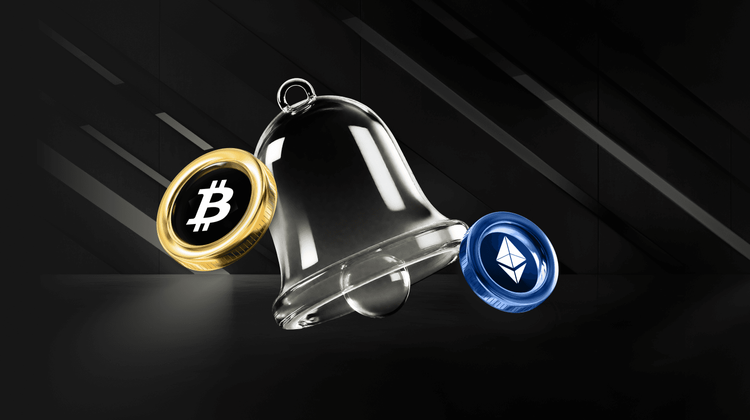
Three Signs that Bitcoin is Discovering its Market Bottom
Key Takeaways: Indicators suggest the selling pressure on Bitcoin is diminishing, hinting at a potential bottom. With improving…
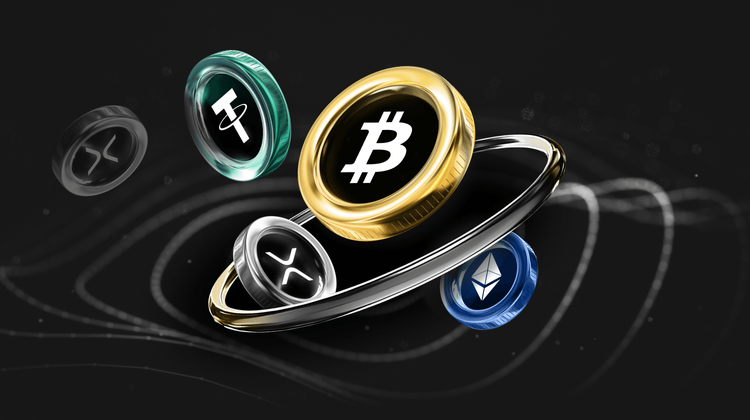
Trump’s World Liberty Financial Token Ends 2025 Significantly Down
Key Takeaways World Liberty Financial, led by the Trump family, witnessed its token value drop by over 40%…
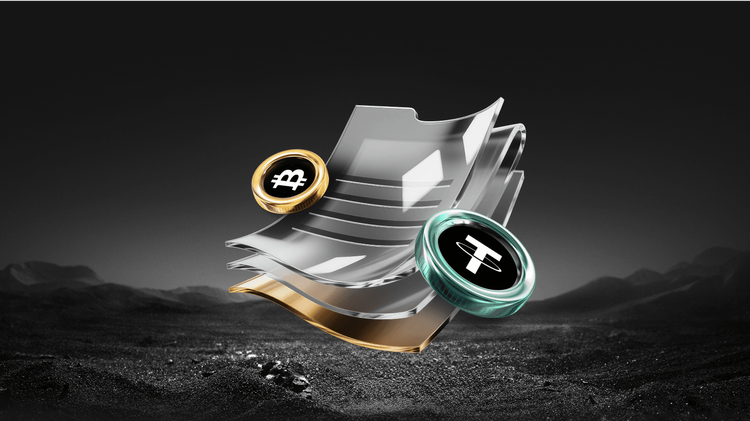
Former SEC Counsel Explains What It Takes to Make RWAs Compliant
Key Takeaways The SEC’s shifting approach is aiding the growth of Real-World Assets (RWAs), but jurisdictional and yield…

Kraken IPO and M&A Deals to Reignite Crypto’s ‘Mid-Stage’ Cycle
Key Takeaways: Kraken’s upcoming IPO may draw significant interest and capital from traditional finance (TradFi) investors, boosting the…
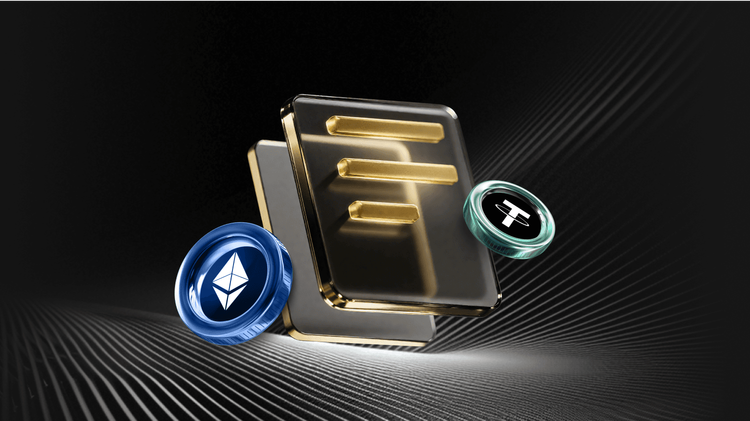
Extended Crypto ETF Outflows Indicate Institutional Pullback: Glassnode
Key Takeaways: Recent outflows from Bitcoin and Ether ETFs suggest a withdrawal of institutional interest. Institutional disengagement has…

HashKey Secures $250M for New Crypto Fund Amid Strong Institutional Interest
Key Takeaways HashKey Capital successfully secured $250 million for the initial close of its fourth crypto fund, showcasing…

Crypto Market Slump Unveils Disparity Between VC Valuations and Market Caps
Key Takeaways Recent market downturns highlight discrepancies between venture capital (VC) valuations of crypto projects and their current…
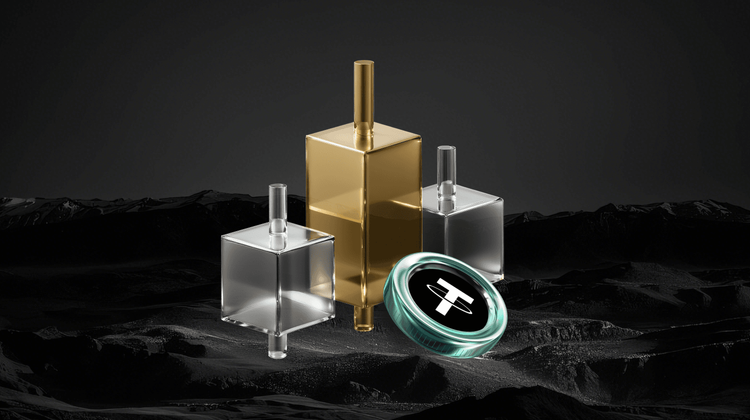
JPMorgan Explores Cryptocurrency Trading for Institutional Clients
Key Takeaways JPMorgan Chase is considering introducing cryptocurrency trading services to its institutional clientele, marking a notable shift…

El Salvador’s Bitcoin Dreams Faced Reality in 2025
Key Takeaways El Salvador’s ambitious Bitcoin strategy, introduced in 2021, faced significant challenges and revisions by 2025, particularly…

Price Predictions for 12/22: SPX, DXY, BTC, ETH, BNB, XRP, SOL, DOGE, ADA, BCH
Key Takeaways: Bitcoin’s recovery efforts are met with strong resistance, indicating potential bearish trends at higher levels. Altcoins…
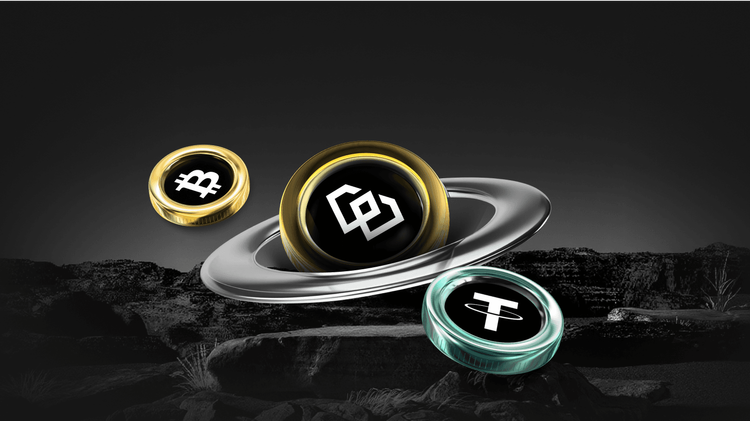
Trump Family-Linked USD1 Stablecoin Gains $150M as Binance Unveils Yield Program
Key Takeaways The USD1 stablecoin, associated with the Trump family, increased its market capitalization by $150 million following…
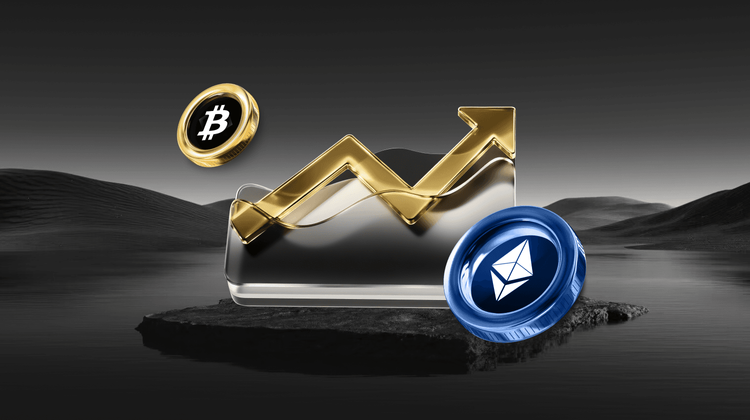
Bitcoin Perpetual Open Interest Surges as Traders Look Forward to Year-End Rally
Key Takeaways Bitcoin perpetual open interest has risen to 310,000 BTC, reflecting a bullish sentiment among traders as…

Aave’s $10M Token Purchase Raises Concerns Over Governance Power
Key Takeaways: Aave founder Stani Kulechov’s $10 million AAVE token purchase sparks debates over governance power concentration. Concerns…

Web3 and DApps in 2026: A Utility-Driven Year for Crypto
Key Takeaways The transition to utility in the crypto sector has set a new path for 2026, emphasizing…

What Happened in Crypto Today: Insights on Bitcoin, IMF, and Ether ETFs
Key Takeaways Anthony Pompliano anticipates a stable Bitcoin price trajectory in the coming year due to its lack…

How to Evaluate a Curator?

Base's 2025 Report Card: Revenue Grows 30X, Solidifies L2 Leadership
Blockchains Quietly Prepare for Quantum Threat as Bitcoin Debates Timeline
Key Takeaways: Several blockchains, including Ethereum, Solana, and Aptos, are actively preparing for the potential threat posed by…
Three Signs that Bitcoin is Discovering its Market Bottom
Key Takeaways: Indicators suggest the selling pressure on Bitcoin is diminishing, hinting at a potential bottom. With improving…
Trump’s World Liberty Financial Token Ends 2025 Significantly Down
Key Takeaways World Liberty Financial, led by the Trump family, witnessed its token value drop by over 40%…
Former SEC Counsel Explains What It Takes to Make RWAs Compliant
Key Takeaways The SEC’s shifting approach is aiding the growth of Real-World Assets (RWAs), but jurisdictional and yield…
Kraken IPO and M&A Deals to Reignite Crypto’s ‘Mid-Stage’ Cycle
Key Takeaways: Kraken’s upcoming IPO may draw significant interest and capital from traditional finance (TradFi) investors, boosting the…
Extended Crypto ETF Outflows Indicate Institutional Pullback: Glassnode
Key Takeaways: Recent outflows from Bitcoin and Ether ETFs suggest a withdrawal of institutional interest. Institutional disengagement has…
Popular coins
Latest Crypto News
Customer Support:@weikecs
Business Cooperation:@weikecs
Quant Trading & MM:bd@weex.com
VIP Services:support@weex.com
